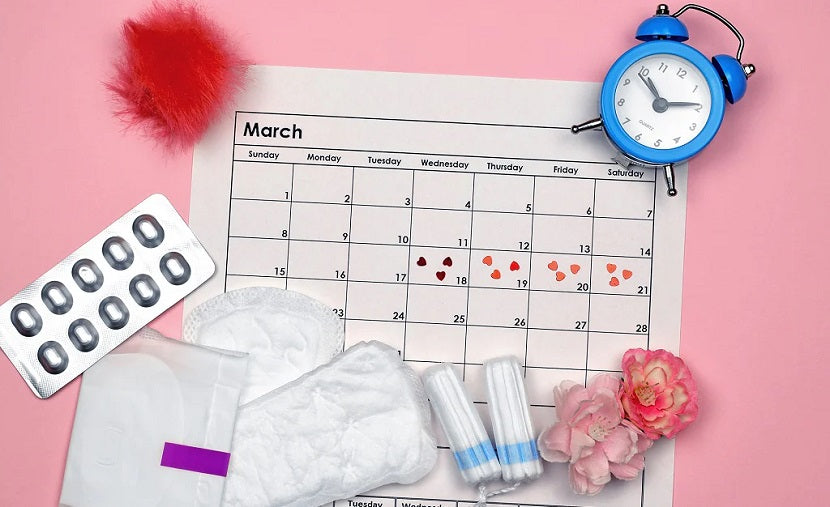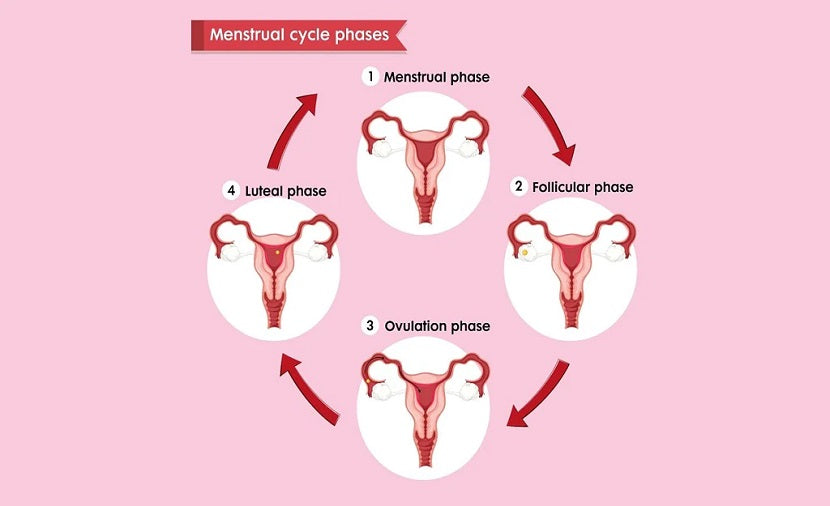When you first menstruate, also known as menarche, there are a few things you should know. Let's begin by understanding what menstruation is and how often it occurs.
How regular are the first periods?
Menstruation is a natural process that occurs as a part of a person's menstrual cycle. Menstruation is a natural process that occurs in people with a uterus, typically every 28 days but can vary from person to person. It involves the shedding of the lining of the uterus that has built up in preparation for a potential pregnancy.
If pregnancy does not occur, the uterus sheds its lining and it is released through the vagina as menstrual blood. Menstrual bleeding usually lasts between 3-7 days and is a normal part of the menstrual cycle.
It's important to keep track of your menstrual cycle
Keeping track of your menstrual cycle can help you anticipate when your period is coming and help you plan accordingly. Tracking your menstrual cycle can be helpful for several reasons:
- Predicting your next period: By tracking your menstrual cycle, you can estimate when your next period will begin. This can help you plan for upcoming events or activities and ensure you have the necessary menstrual hygiene products available.
- Identifying irregularities: Tracking your menstrual cycle can help you identify irregularities such as missed periods, longer or shorter than usual menstrual cycles, or heavier or lighter than usual menstrual bleeding. Happy Healthy You offers period pain supplements such as Happy Period which offer natural period pain relief in case you are experiencing difficulty. However, it is important to keep in mind that these changes could be an indication of underlying health issues that may require medical attention.
- Fertility tracking: By tracking your menstrual cycle, you can identify the days when you are most likely to ovulate and therefore more likely to conceive if you are trying to become pregnant. Conversely, if you are trying to avoid pregnancy, tracking your menstrual cycle can help you identify the days when you are most fertile and therefore should avoid sexual activity or use contraception.
- Monitoring symptoms: Tracking your menstrual cycle can help you identify any patterns in premenstrual symptoms or menstrual cramps, which can help you manage them more effectively. Overall, tracking your menstrual cycle can help you better understand your body and its patterns, which can lead to better overall health and well-being.
What menstrual products you should use
There are many menstrual hygiene products available such as pads, tampons, menstrual cups, and period underwear. Choose the product that is most comfortable and convenient for you. If you are curious about menstrual cups and would like to know more, have a read of this article.
Maintain good hygiene during your period
Change your menstrual hygiene product every 4-8 hours or as needed. It's also important to wash your genital area regularly and avoid using scented products that can irritate sensitive skin. While it does sound basic, these tips certainly provide natural menstrual pain relief.
How to identify signs of menstrual disorders
Some menstrual disorders like heavy bleeding, irregular periods, or severe cramps can indicate underlying health issues. There are several signs of menstrual disorders that you should be aware of, these can include:
- Abnormally heavy bleeding: Menstrual bleeding that is significantly heavier than usual or lasts longer than 7 days can be a sign of a menstrual disorder such as menorrhagia.
- Irregular periods: If your menstrual cycle varies significantly in length or you skip periods altogether, this could be a sign of an irregular menstrual cycle or anovulation.
- Painful periods: While some discomfort during menstruation is normal, if you experience severe cramps or pelvic pain during your period, it could be a sign of conditions such as endometriosis or pelvic inflammatory disease. Happy Healthy You’s Magnesium, Sleep and Pain Formula acts as a natural period pain relief that can help reduce pain in day-to-day life.
- Premenstrual syndrome (PMS): Symptoms such as mood swings, fatigue, bloating, or headaches in the days leading up to your period can be a sign of premenstrual syndrome.
- Amenorrhea: Absence of menstrual periods for more than three months in women who have previously had regular periods can indicate a menstrual disorder.
Take care of your overall health
Eating a healthy diet, getting regular exercise, managing stress, and getting enough sleep can all help support a healthy menstrual cycle. We have a great online clinic if you feel your needing additional holistic support.











Leave a comment
This site is protected by hCaptcha and the hCaptcha Privacy Policy and Terms of Service apply.